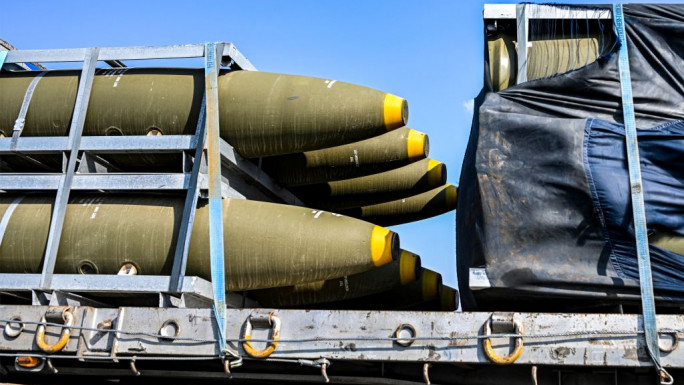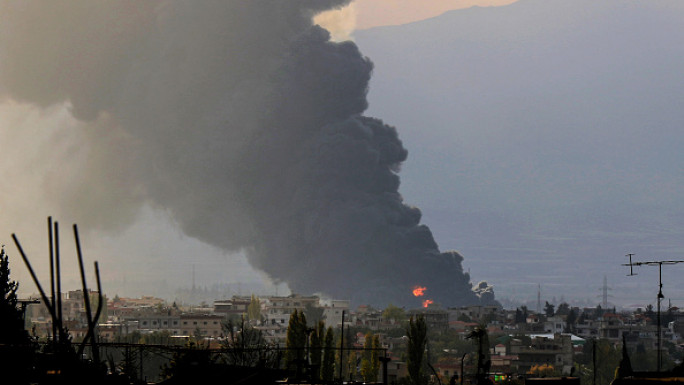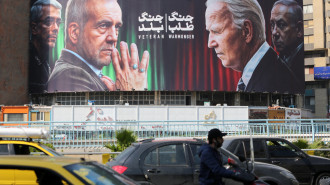Yemen: Coffee production to double
Yemen: Coffee production to double
The Yemeni government is hoping that increasing coffee production with revive Yemen's economy.
3 min read
Coffee plantations in the highlands of Yemen [Getty]
Coffee is a historic Yemeni export, one that once made the country famous worldwide. But hampered by low levels of rainfall, outdated farming methods and a far more water-intensive and popular rival in the mildly narcotic khat plant, Yemen has long failed to make the most of its export potential.
The government is now looking to the bean as a way to boost the country’s faltering economy.
"We hope we can double the production of coffee to 50,000 tons a year through strategic programmes, a third of this will be exported and generate revenues of over $300 million," Abd al-Malik al-Thaur, an official in the Yemeni Ministry of Agriculture, told al-Araby al-Jadeed.
Thaur said Yemeni coffee is one of the most expensive in the world, costing over $15 per kg.
There is currently 34,500 hectares of agricultural land allocated for coffee production. The beans grow on small trees in valleys with a warm humid climate, and on mountain slopes and terraces at between 700 to 2,400 metres above sea level.
Thousands of families in Yemen rely on coffee as their main source of income, with around a million people employed at different levels of production and in the export of the final product.
In 2012, coffee production rose to 19,000 tons from 14,000 tons in 2009, and in 2013 it rose to 20,000 tons. However, this is a modest amount compared to other countries with Brazil, for example, producing 2.6 million tons in 2012.
Farid Ahmed Mujawar the minister of agriculture said yesterday the government was hoping to increase annual coffee production to 50,000 tons in the next five years. Mujawar added that the ministry was hoping to reach this goal by implementing programmes such as: increasing rainwater harvesting, and introducing up-to-date irrigation systems and solar energy.
Yemen currently exports between 7,000 to 10,000 tons of coffee to Japan, the US, Saudi Arabia and Egypt.
Production levels are low compared to the world’s top producers - Brazil, Vietnam, Indonesia and Colombia. This is because Yemen receives significantly lower levels of rainfall and its agricultural methods are out-dated.
Much of Yemen’s agricultural land, moreover, is used to grow khat which generates quick profits. The leaves of this shrub are a stimulant when chewed and produce a mild sense of euphoria and excitement. Chewing Khat is a common practice in Yemen and the Horn of Africa and is so widespread that a shortlived ban on khat in the mid-2000s was copletely ignored before being quietly dropped.
But widespread cultivation of khat has heightened water shortages as the plant needs more water to grow than other crops. Khat was made illegal in the UK in June 2014.
Farouq Qassem, director general of agricultural marketing, said work was under way to improve the production system. This includes increasing the production of seedlings, and subsidising prices or distributing them for free to farmers.
In 2013, USAID launched a programme to set up six nurseries and irrigation plots for coffee plants in six governorates, and train over 600 farmers in irrigation and rainwater harvesting and storage techniques. There is also a Community Livelihoods Project that aims to increase the standard of coffee produced.
Yemen also hopes to improve its coffee's international image by displaying it alongside honey at the World Fair to be held in Milan, Italy, next year.
Coffee was originally cultivated in Ethiopia but the earliest evidence of coffee-drinking comes from 15th century Yemen where it was drunk in Sufi rituals. Coffee was introduced to the Arab world through Yemen, from which it spread to Italy, the rest of Europe and India. The Yemeni port city of Mocha is the origin of name for the popular Mocha coffee bean. In Yemen, coffee is usually drunk in a hot spiced drink called Qishr made of spiced coffee husks, ginger and sometimes cinnamon.
This article is an edited translation from our Arabic edition.
The government is now looking to the bean as a way to boost the country’s faltering economy.
| Yemeni coffee is one of the most expensive in the world at over US$15 a kilo. |
Thaur said Yemeni coffee is one of the most expensive in the world, costing over $15 per kg.
There is currently 34,500 hectares of agricultural land allocated for coffee production. The beans grow on small trees in valleys with a warm humid climate, and on mountain slopes and terraces at between 700 to 2,400 metres above sea level.
Thousands of families in Yemen rely on coffee as their main source of income, with around a million people employed at different levels of production and in the export of the final product.
In 2012, coffee production rose to 19,000 tons from 14,000 tons in 2009, and in 2013 it rose to 20,000 tons. However, this is a modest amount compared to other countries with Brazil, for example, producing 2.6 million tons in 2012.
Farid Ahmed Mujawar the minister of agriculture said yesterday the government was hoping to increase annual coffee production to 50,000 tons in the next five years. Mujawar added that the ministry was hoping to reach this goal by implementing programmes such as: increasing rainwater harvesting, and introducing up-to-date irrigation systems and solar energy.
Yemen currently exports between 7,000 to 10,000 tons of coffee to Japan, the US, Saudi Arabia and Egypt.
Production levels are low compared to the world’s top producers - Brazil, Vietnam, Indonesia and Colombia. This is because Yemen receives significantly lower levels of rainfall and its agricultural methods are out-dated.
Much of Yemen’s agricultural land, moreover, is used to grow khat which generates quick profits. The leaves of this shrub are a stimulant when chewed and produce a mild sense of euphoria and excitement. Chewing Khat is a common practice in Yemen and the Horn of Africa and is so widespread that a shortlived ban on khat in the mid-2000s was copletely ignored before being quietly dropped.
But widespread cultivation of khat has heightened water shortages as the plant needs more water to grow than other crops. Khat was made illegal in the UK in June 2014.
Farouq Qassem, director general of agricultural marketing, said work was under way to improve the production system. This includes increasing the production of seedlings, and subsidising prices or distributing them for free to farmers.
In 2013, USAID launched a programme to set up six nurseries and irrigation plots for coffee plants in six governorates, and train over 600 farmers in irrigation and rainwater harvesting and storage techniques. There is also a Community Livelihoods Project that aims to increase the standard of coffee produced.
Yemen also hopes to improve its coffee's international image by displaying it alongside honey at the World Fair to be held in Milan, Italy, next year.
Coffee was originally cultivated in Ethiopia but the earliest evidence of coffee-drinking comes from 15th century Yemen where it was drunk in Sufi rituals. Coffee was introduced to the Arab world through Yemen, from which it spread to Italy, the rest of Europe and India. The Yemeni port city of Mocha is the origin of name for the popular Mocha coffee bean. In Yemen, coffee is usually drunk in a hot spiced drink called Qishr made of spiced coffee husks, ginger and sometimes cinnamon.
This article is an edited translation from our Arabic edition.





 Follow the Middle East's top stories in English at The New Arab on Google News
Follow the Middle East's top stories in English at The New Arab on Google News


